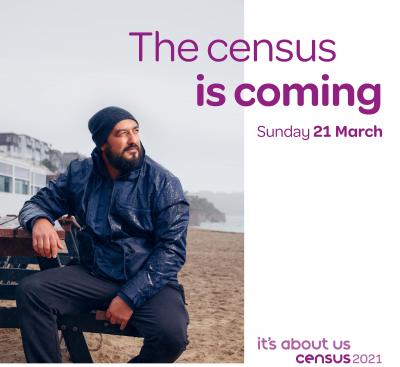Understanding the needs of the nation helps everyone from central government to local organisations, such as councils and health authorities, plan and fund public services across England and Wales.
Census outputs inform where public funding is spent on services like transport, education and health – on cycle routes, schools and dental surgeries.
The census, taking place on 21 March, 2021, will shed light on the needs of different groups and communities, and the inequalities people are experiencing, ensuring the big decisions facing the country following the coronavirus pandemic and EU exit are based on the best information possible.
Sundeep Dhadley, Census engagement manager for Wolverhampton, said: "The Census has always been important, but Census 2021 feels even more important than ever. I feel extremely proud to be in a position to ensure that all community voices and experiences are considered within future decision-making processes in Wolverhampton, but this can only happen if all communities complete their Census questionnaire."
Tim Johnson, chief executive of City of Wolverhampton Council, said: "The Census really matters, it provides essential information which is used to make decisions which affect us all. It will play a big part in the amount of Government funding Wolverhampton receives in future and the more resources we have, the easier it will be to recover and relight our city after the pandemic.
“The Census is your opportunity to ensure that you and your household is represented in statistics which are then used to paint the most accurate picture of the nation, making sure the needs of communities are understood and resources are allocated appropriately.
“This is why it is so vitally important that everyone completes the Census so that the data gathered is accurate and reflects the true picture."
Households will begin receiving letters with online codes in March explaining how they can complete their online census. People can also request a paper questionnaire if they would prefer to complete the census that way.
In areas where lower online completion is expected, around 10% of households will receive a traditional paper form through the post.
There is plenty of help available, with people also able to complete the census over the phone with assistance from trained staff via the ONS’ free phone contact centre. The ONS also aims to provide in-person support to complete the census online through Census Support Centres where it is safe to do so.
The main census field operation will begin only after Census Day, contacting those who have not responded. Field staff will never need to enter people’s houses; they will always be socially distanced, wear PPE and work in line with all government guidance. They will be operating in the same way as a postal or food delivery visit.
Census 2021 will include questions about your sex, age, work, health, education, household size and ethnicity. And, for the first time, there will be a question asking people whether they have served in the armed forces, as well as voluntary questions for those aged 16 and over on sexual orientation and gender identity.
Results will be available in 12 months, although personal records will be locked away for 100 years, kept safe for future generations.
For more information and advice on how to answer the questions, visit Census 2021.
